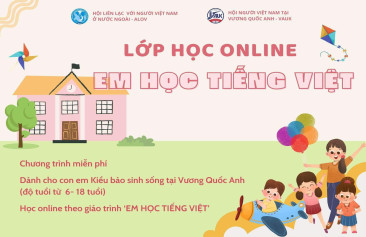.png)
I recently read a novel called “And the mountains echoed" by an Afghan American author named Khaled Hosseini. In the book there's a character whose family moves to the States, and her dad makes her go to Farsi lessons.

Clearly, she doesn’t want to study Farsi. However, years later, there’s a scene where she has to translate an important letter written in Farsi. Suddenly those endless hours of study are paying off.
I think the girl’s experience is a very common one. In fact, it reminds me of one particular student of mine. He was a heritage learner – in other words, he had grown up outside Vietnam, and had learned Vietnamese in that context. Such heritage learners typically speak Vietnamese at home, and so can become quite fluent when talking about basic everyday stuff. However, they tend to struggle a bit when you try and talk to them about other things. And, often, they have never learned to read or write in Vietnamese.
When I first talk to a heritage learner, it’s like a Turing test - can you pass as a native speaker? Most fail this test within a couple of minutes. They may be fluent, but they clearly didn’t grow up in Vietnam. This particular student, though, was different. I knew from his initial email that he had grown up in Australia, but when I spoke to him, I found that he could just about have convinced me otherwise.
How could he do this? Well, it turned out that, in Australia, his parents made him go to a Bhuddist temple to learn Vietnamese. That was back in the 80s and 90s. Apparently, pre-internet, that was where you could go to have lessons, connect with other Vietnamese, celebrate Tet together, etc.
A Vietnamese lesson at Thanh Duc pagoda, Jacksonville, Florida. Source: https://chuathanhduc.wordpress.com/lop-viet-ngu-2/hinh-sinh-hoat/sinh-hoat/
He went to that temple regularly for 11 years, and he hated it. But now, he feels grateful that his parents sent him there. It was worth it, he says, for his current high level in Vietnamese. He visits Vietnam a lot and feels at home here.
So here’s the thing. When a child of Vietnamese parents grows up abroad, they end up in one of three broad categories. One: the child grows up speaking no Vietnamese, and as an adult, if they want to learn Vietnamese, it is just as difficult for them as for any other adult learner. Two: the child grows up speaking Vietnamese casually at home, and so becomes native-like in things like pronunciation and listening skills, but has a relatively limited vocabulary, and probably can’t read or write. Three: the child grows up speaking Vietnamese casually at home, but in addition, like my student, they are given formal instruction, including reading and writing.
People in category 1, if they begin studying Vietnamese as adults, more than 99 percent of them will never be able to pass the Turing test for a native Vietnamese speaker. People in category 2, they have a solid foundation. They have mastered pronunciation and listening to an extent that can only be achieved in childhood. People in category 3, they had some work to do when they were younger – but do any of them regret it, now that they are grown up and able to communicate so well in Vietnamese?
I’m curious to hear from you in the comments. Which category do you belong to? And are you happy to be in that category? Do you think your parents made the best choices? If you are a parent, or plan to become one, what choices will you make? What price is worth paying for the gift of lifelong fluency in one’s ancestral language?
_(1)_thumb.png)
_thumb.jpg)
_thumb.jpg)
_thumb.png)

_thumb.png)
_thumb.png)
_thumb.png)
_(366_x_237_px)_thumb.png)
_thumb.png)